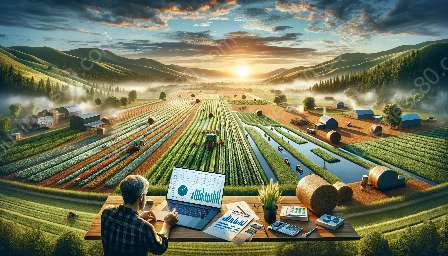Precision farming, also known as precision agriculture, is a modern farming approach that integrates technology to optimize crop production and minimize environmental impact through data-driven decision-making.
What is Precision Farming?
Precision farming involves the use of advanced technologies such as GPS, sensors, drones, and data analytics to gather real-time information about crop health, soil conditions, and weather patterns. This data is then used to make precise and informed decisions regarding planting, irrigation, fertilization, and pest control.
Key Components of Precision Farming
1. Data Collection: Sensors and drones are used to collect data on soil moisture, nutrient levels, and crop health. GPS technology enables precise mapping of field variability.
2. Data Analysis: Advanced analytics tools process the collected data to generate insights and actionable recommendations for farmers.
3. Variable Rate Technology (VRT): VRT enables the application of inputs such as water, fertilizers, and pesticides at variable rates based on the specific needs of different areas within a field.
4. Remote Sensing: Drones and satellites provide high-resolution imaging for monitoring crop growth and identifying areas of concern.
Farm Management and Precision Farming
Precision farming plays a crucial role in modern farm management by enabling farmers to make data-driven decisions that optimize resource allocation and improve overall efficiency. By utilizing precise data on soil conditions and crop health, farmers can tailor their management strategies to maximize yields while reducing inputs and environmental impact.
Impact on Agriculture & Forestry
The integration of precision farming in agriculture and forestry has led to significant advancements in sustainable land management and resource conservation. By leveraging technology to optimize resource use and minimize waste, precision farming is helping to address the challenges of feeding a growing global population while preserving natural ecosystems.
Benefits of Precision Farming
1. Improved Crop Yields: Precision farming techniques enable farmers to optimize crop production through targeted inputs and management practices, resulting in higher yields and quality.
2. Resource Efficiency: By precisely applying inputs such as water, fertilizers, and pesticides, precision farming minimizes waste and reduces the environmental impact of agriculture.
3. Cost Savings: Data-driven decision-making allows farmers to optimize resource allocation, leading to cost savings on inputs and increased profitability.
4. Environmental Sustainability: Precision farming promotes sustainable agricultural practices by minimizing the use of resources and reducing the negative impact on the environment.
Challenges and Future Outlook
While precision farming offers numerous benefits, it also presents challenges related to data management, technology adoption, and the need for specialized skill sets. However, ongoing advancements in technology and increased awareness are driving the widespread adoption of precision farming practices across the agricultural industry, shaping the future of sustainable and efficient farming.


